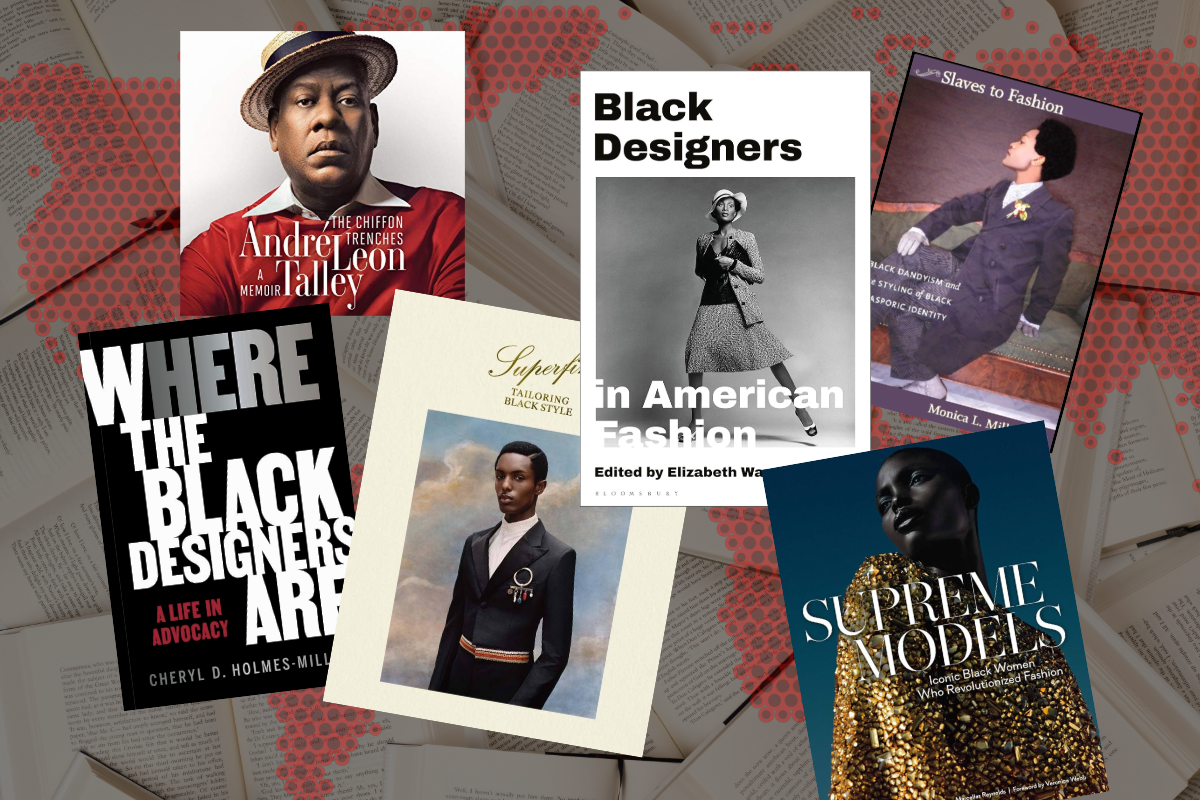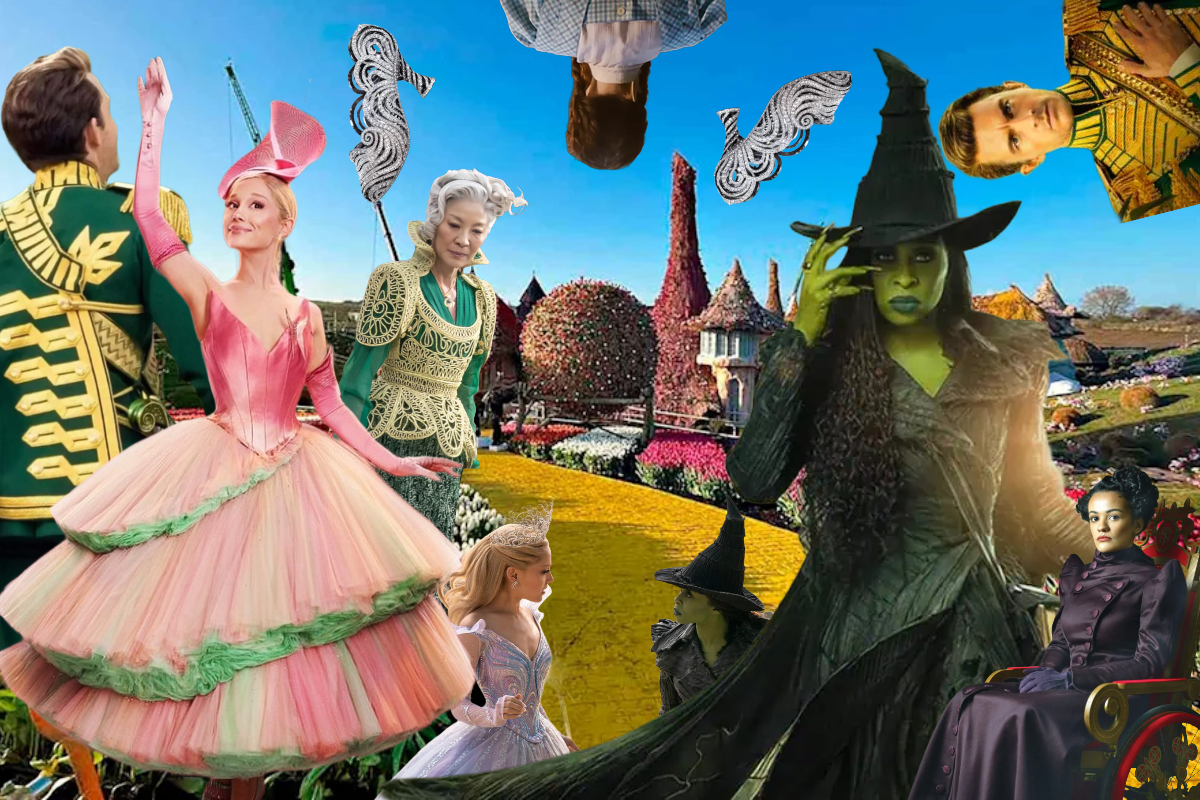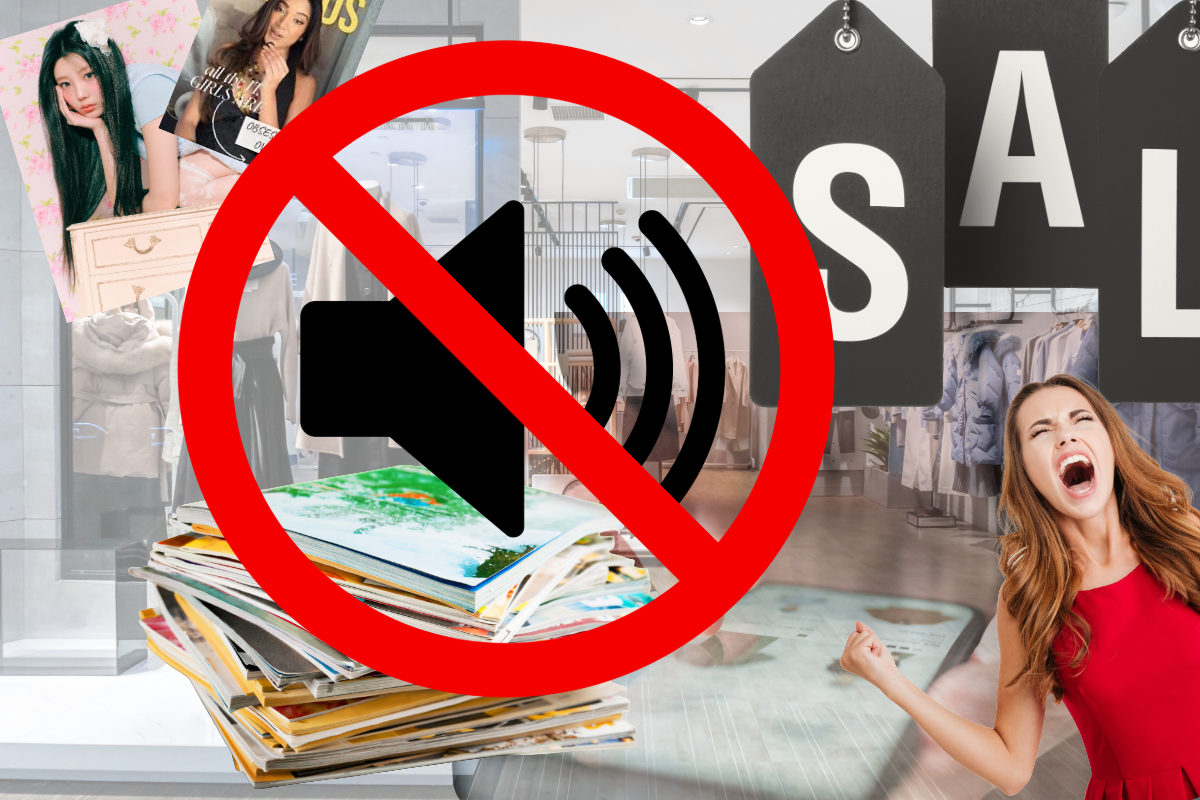There is chaos, disruption, trauma, disappointment, fear, uncertainty, turbulence, tension, devastation, anger, and confusion all around the world. Hiding these emotions under the rug of optimism claiming that we must keep a positive attitude is only making things worse.
May is mental health awareness month. A month where many doctors, and specialists draw meaningful attention to one of the biggest yet silent health epidemics people around the world are facing.
In Political Fashion, we have talked about the biggest and most intricate interactions that we have with our clothes on the day to day. How fashion, and us interact with sadness, or anger. And how fashion can be a shield to hide our insecurities.
But today, we are going to talk about the external messages going around us in fashion that may be harming our mental health. It is important to verbalize these messages and these conceptions that we may have of ourselves in order to tackle them in the best way so that the reader, with the guidance of their mental health professional, decides how to address these feelings, emotions and thoughts.
The messages to be discussed are not just words we hear in fashion conversations, they are also encrypted messages in the fashion we are seeing, in the spokespeople who earn the most attention on the spotlight, in the way fashion is distributed, consumed, and perceived.
Let’s talk about the messages coming from the fashion industry that may be harming our mental health.
The feeling of not belonging

Walking into a store that doesn’t carry our sizes, or seeing fashion models that represent everyone but us.
Feeling left out of a conversation because all the people in the circle have a larger disposable income than you, and you are not really following the conversation.
The feeling of not belonging can also be the reason why we decide to not walk into a store that we used to like walking into. Bad experiences, and not enough size assortments make us feel like we don’t belong as customers of the store and we should stay away from that store. Somewhere in that process, it may seem as if we did something wrong or as if there is something wrong with us.
But Political Fashion means being unapologetically you and dressing regardless of age, size, gender, style and socioeconomic backgrounds. Fashion brands understand the diverse demographics of the customers they are targeting, and many of them could do a better job at acknowledging this diversity of demographics, not just by portraying them on the editorial campaigns that make the visual displays of the store and that become Facebook and Instagram ads. More sizes, a diverse workforce that makes the creative and operative decisions, and training for retail associates against unconscious biases that is pushing customers away. All of these are actions that fashion businesses could be taking to make us feel more included.
As a consumer, allow yourself to stay away from fashion businesses, social media pages, influencers, and newsletters that make you feel that you don’t belong.
As a fashion professional, acknowledge that the words and the actions that you take carry weight for the workforce around you, and for the audience receiving the messages you are sending with your words and actions.
The feeling of being ugly?

Short height, curvy bodies, small eyes, slim lips, square hips. We are not strangers to body insecurities triggered by the standards of beauty we see presented around us. These standards change depending on time, culture, and country, and it’s very common that we gravitate to being insecure towards a specific part of our bodies. It’s also understandable that parts of our body that we felt confident about we are now insecure of, and the other way around.
In the mid 2010’s there were a few years of visibility towards plus size models and plus size beauty.
Curvy women and curvy celebrities gained major media attention walking in major fashion shows and being the cover page of fashion magazines. Precious Lee, and Paloma Elsesser among other curvy women were at a peak in fashion press coverage, and walking in fashion shows such as Michael Kors and Moschino.
But it seems that we took a step forward and two steps backwards.
Fast forward to 2022 when Kim Kardashian celebrated at the Met Gala that she lost 16 pounds in three weeks by following a rigorous diet and working out a lot. We suddenly went back 20 years to the bad old days when celebrities advised on losing weight creating dangerous standards of beauty for young girls watching their favorite celebrities on TV.
The narratives that come from these red carpet events, and celebrity culture, and the fashion industry eager to sell to the newest collection, can be very damaging to our mental health if we internalize the idea that we need to look like whatever they are trying to show us in order to be beautiful.
The feeling of being less than

In fashion and in politics, there are social constructions about what adds “more value” to a person or a person’s career. Ivy league, white skin, luxurious fashion and the latest iPhone are the uniform for success, recognition and having a seat at the table.
When we miss an ingredient in this formula, it is not surprising if we end up feeling inferior than those who have the entire formula; especially because having this formula opens the door to an endless list of privileges.
Now, we all carry our own baggage of insecurities, and dreams to be. So this unreachable perfect formula might change from one person to the other. For instance, maybe an Ivy league wealthy student is unhappy because he was not allowed to choose his major, or the school he wanted to go to. His perfect formula includes independence and autonomy that because of a variety of factors in his life, it’s not attainable.
One of the most common ways to feel left out of the perfect formula in fashion is the use of high-fashion, or luxury brands. Girls carrying their Chanel purses worth five months of rent, and feeling that not having access to these luxury goods is a personal failure or a matter of inferiority with ourselves.
But social inequity has nothing to do with us personally failing or being “less-than” other people. Some high fashion brands play with these feelings in the name of good marketing to attract consumers, but it is unfair to put ourselves down for not being on the same path as those strangers around us who, on the surface, seem to have luxury, privilege and fun. We are all walking on our own path carrying our very personal baggage. Let’s be fair and caring to ourselves and stay away from comparisons that bring us down.
There are colors, textures, and fits that can make us feel good, rich, better, expensive. The very famous “fake it till you make it”. Marcellas Reynolds spoke on the Dressed: The History of Fashion podcast, about how his mother would go thrifting with him in the search for cashmere, wool, silk, and the finest clothes that she could find, so she can wear them to look spectacular and feel spectacular.
Fashion shouldn’t be about feeling less or more than. It is about working with what we have and making the most with it so that we can enjoy every day of our lives looking spectacular and feeling spectacular.
There are many misleading messages portrayed in the fashion industry that may be harming our mental health. If you find yourself in this situation, allow yourself to take a deep breath, let yourself feel what you are feeling, and take the time you need. You are doing great.








